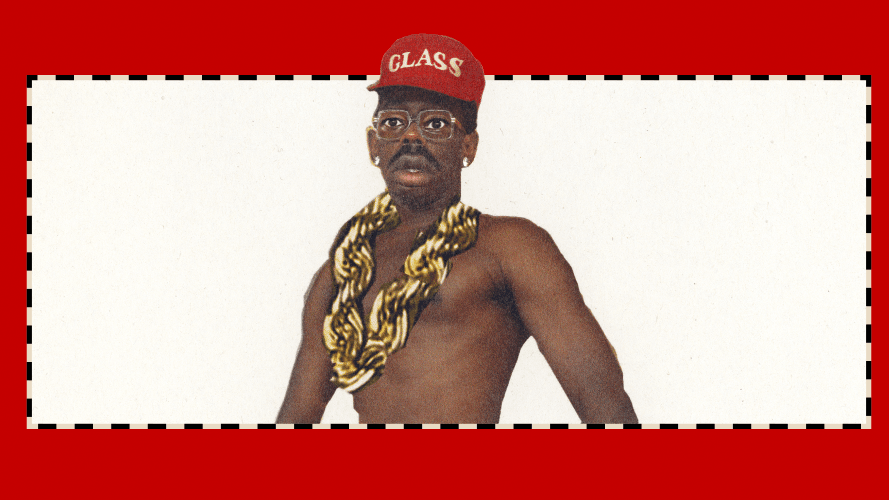Stop trying to overthink this. There is a new Tyler, the Creator album, and the only thing you’re meant to do is dance along. No narrative interludes to pick apart, no character-based storylines, no eight-minute tell-alls, and no three-parters. Please leave that half-baked thinkpiece in your drafts (“None of that deep shit!”). On Don’t Tap the Glass, Tyler embraces the kineticism of his past work and fuses it with the free-flowing moods of regional stylings. From the bionic suave of his native Los Angeles, to the buoyant rhythms of the Midwest and Dirty South, Tyler’s most concise record (just 10 songs, 28 minutes) dips and dabbles in sounds outside of his self-contained incubator. Here are five takeaways from Don’t Tap the Glass.
Superstar Status
Tyler, the Creator used to have a real chip on his shoulder; his debut mixtape literally started with him cursing out some then-relevant blogs that refused to cover him and Odd Future as they were climbing up the ranks. With multiple No. 1 albums and Grammys in his pocket now, a lot of things have changed for him. Don’t Tap the Glass is a genuine embrace of his superstardom. Tyler doesn’t need Ye and Wayne to back him up on a track, and he doesn’t need DJ Drama to yell at you about how everyone’s toes are out on the yacht deck. The “Stop Playing With Me” video feels indicative of this shift. Here he is in a room dancing by himself with two big-ass speakers. It mostly stays like this: There are no outfit changes, no elaborate set designs or costumes. He appears simply as himself. Sure, he can tap Clipse, LeBron, and Mav Carter to make cameos, but that feels more like an “I’m doing this ’cause I’m Tyler, the Creator” moment than a way of proving his relevance.
Body Movement. No Sitting Still.
Don’t Tap the Glass comes with a straightforward message, explained in a long-winded statement he posted online. Lamenting society’s collective fear of embarrassment-via-self-expression, he urges people to put the phones down and dance. “A natural form of expression and a certain connection [people] have with music is now a ghost,” he wrote. “It made me wonder how much of our human spirit got killed because of the fear of being a meme.” Now, if you couldn’t tell by the album’s dynamic beats, the lyrics are yelling at you to stop thinking so damn much. He’s pushing baby blue Bimmers and eating cream pies in the backseat, calling his exes and flirting with theirs. Yeah, it’s a little nasty, but the point is to do what feels good! The album’s most important line comes in the form of a simple command on the dreamy “Don’t You Worry Baby”: “Damn, girl, you better move yo’ hips!”
A Not-So-Secret Guest Feature
A big part of the fan-artist dynamic in the social media era is the audience’s pointed, lofty expectations. (Tyler’s definitely no stranger to this.) Over the weekend, fan pages salivated over make-believe crossovers and posse cuts, not really considering the prospect of this being purely a solo album. And Don’t Tap the Glass is pretty close to being just that. One unnamed feature on the intro sticks out though, complementing Tyler’s characteristic moxie with seasoned, head-of-state bravado. I could be wrong, but I feel pretty confident that it’s Pharrell channeling Chuck D’s cadence through a talkbox. It hasn’t been confirmed yet, but it makes sense for the Louis Vuitton head honcho to be “in Paris where it rains,” flexing aircrafts and expensive jewelry. Considering how Pharrell has served as Tyler’s lifelong lodestar and has regularly collaborated with him for over a decade, it makes a lot of sense. Also, you don’t rap bars like, “You niggas don’t talk to your accountant,” unless you’re at least 45.
Embrace of Regionality
It feels like the closest Tyler’s gotten to embracing regionality before now was his attempt at making the “shitty New York beat” that shot him past the stratosphere. Don’t Tap the Glass grapples with New York and many other places’ sounds in a dancier, more earnest way, starting with “Big Poe”’s second refrain, sampled from Busta Rhymes’ “Pass the Courvoisier Part II.” That head-cracking “Don’t this shit make a nigga wanna jump!” really sets this whole thing off. Different pieces of Tyler’s new palette feel like they were plucked from clubs across the map, like the Italo disco of “Sugar on My Tongue” and the title track’s New Orleans bounce. The G-funk of “Sucka Free” even sees him swap out his faux New York accent for an L.A. one. There may even be some Milwaukee lowend influence on “Stop Playing With Me.” I’m not trippin’ right?
Remnants of the Past
As much as Don’t Tap the Glass feels like a slight departure from Tyler’s heady, varicolored world-building, this record is nonetheless tethered to what came before it. Hearing “Odd Future Wolf Gang, all the bros in here” near the album’s start takes me back to watching Loiter Squad and keeping my fingers crossed for that mythical EarlWolf record. The intro kicks off with Tyler laying out some ground rules with a robotic filter on his voice. Remember when Dr. TC set the framework on “Bastard”? It’s not all that far off. And the vocal vitriol he had at that time never really disappeared; it’s just been channeled through different lenses. Instead of rage or provocation, Tyler feels more focused on thrillseeking. Peep the childishly giddy adlibs on “Stop Playing With Me” and then listen back to the goofy hijinks of 2013’s “Tamale” and “Domo23.” Plus, on tracks like “Ring Ring Ring,” there’s a neo-soul tinge that feels in line with the stylistic leap he took on Flower Boy, his major shapeshift that came out eight years ago today.
